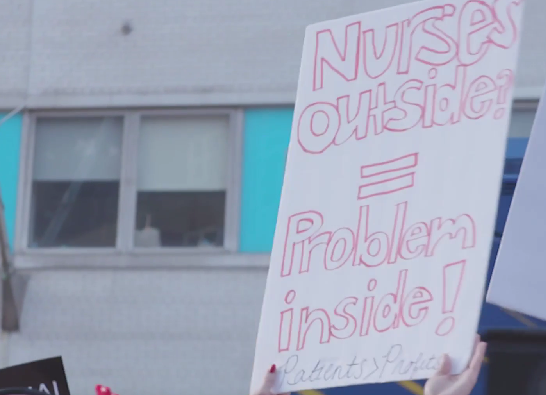While you may not pay attention to the news of unionization as closely as we do here at AFFT, you may have seen a recent uptick in unionization amongst medical interns at both public and private hospitals across the country.
A medical intern impacted by these efforts reached out AFFT this week to ask some questions about unionization in his workplace. While working at a public hospital in the Northeast, this intern was employed by a staffing agency and was not a direct employee of the hospital. Originally from a Southern, Right-to-Work state, he was unfamiliar with his rights surrounding union membership.
Some of his coworkers decided that the answer to the long hours and low pay for medical interns was unionization. While he does agree that the hours are long and the pay is low, he said it’s a part of the process of becoming a doctor. He considers himself to be like an apprentice and believes that his current education and training will provide a great career and salary in the near future. Logistically, unionization didn’t make sense to him for a group that is very transient. For example, a surgical resident will spend no more than three years at one location before moving on to another role and location.
The AMA Journal of Ethics points out the complexities of doctors unionizing including the problematic idea of how the Hippocratic oath and striking might intersect. If a union were to call a strike or work stoppage, how would that impact patient care? While there are rules for doctors striking, the morality surrounding striking doctors didn’t sit right with our contact.
Strikes in the healthcare industry can have severe consequences. Several hospitals in New York City were negatively impacted by a nurses’ strike in January 2023, which forced these hospitals to reschedule medical appointments and elective procedures. Unfortunately, the strike may have affected the care of a four-month-old baby in neonatal intensive care (NICU), who died during the strike. Preliminary reports surrounding the baby’s death blamed the hospital administrators for not staffing the NICU unit with trained NICU nurses, but ignored the possibility that the trained NICU nurses were striking and therefore forced the hospital to staff the NICU unit with inexperienced nurses.
Unfortunately for the medical intern who reached out to us, because he is technically employed by an agency and not the public hospital, the Janus vs. AFSCME case would not apply to him and he would be forced to pay dues if the medical interns vote to unionize. He’s hoping to convince his fellow interns that unionization is not the best way for medical professionals to negotiate pay, working hours, and other workplace concerns.
If you are a medical professional and are interested in learning more about your rights in a unionized workplace, AFFT is prepared to help!
